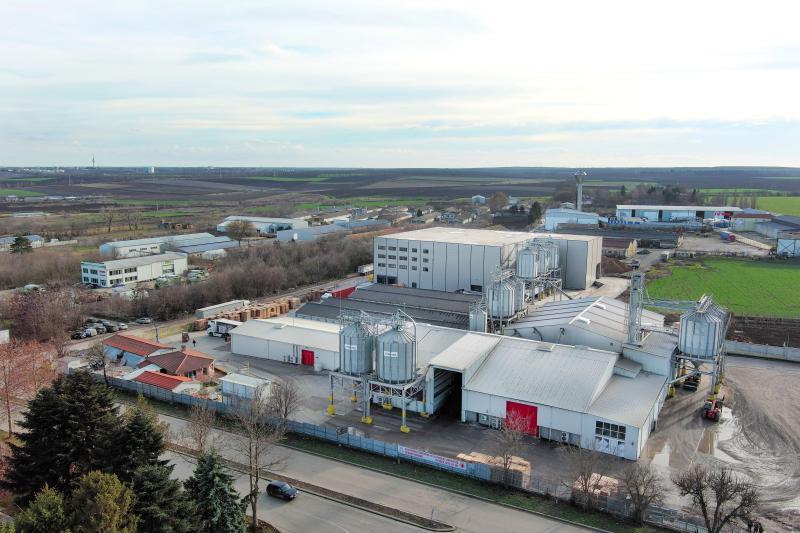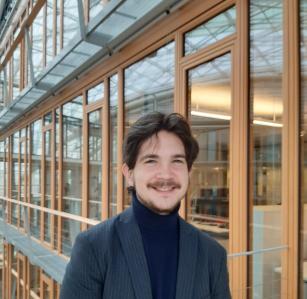European guarantees help Bulgarian businesses remain competitive and grow, boosting employment and economy
Sunflower seeds are an important ingredient in Bulgarian cuisine. They are used in variety of dishes, including soups, salads, and baked goods. You can find them as a topping on traditional Bulgarian bread.
Headquartered in Sofia, Magic Flame Ltd., also known as Magic Flame, is making sure that Bulgarian homes and bakeries never run out of sunflower seeds. The company is processing, producing, and distributing cereals and oilseed crops, such as sunflower husk and chips, to Bulgaria and other countries around the globe. Starting from 2020, the company is also producing sunflower oil.

“We have been in the grain market for more than 14 years,” says Borislav Hristov, Magic Flame’s chief of financial officer. “Every year we export over 200,000 tons of agricultural products worldwide.”
Magic Flame is one of the companies that benefitted from the guarantee agreement between the European Investment Bank Group and UniCredit Bulbank Bulgaria (Bulbank), signed in October 2021. The guarantee facility helped unlock new loans of close to €200 million to small and medium sized companies (SMEs) and mid-caps. Thanks to the new loan, Magic Flame was able to grow and expand its products.
Supporting businesses in Bulgaria
SMEs and mid-caps are key players in the Bulgarian economy with about 338,000 operating there in 2022. They also employ over 75% of the workforce and generate 65% of the added value in the economy.
But, Bulgarian companies face several challenges to grow and develop. They often struggle to get finance, limiting their possibilities to grow and remain competitive. It also reduces the economic opportunities for the local population, especially in lagging regions.
The COVID-19 pandemic made this problem worse. Even healthy small companies found it hard to pay wages and bills, let alone invest for the future. In most cases, they had to turn to a bank to stay afloat.
To alleviate the burden on Bulgarian businesses, the European Investment Bank Group provided a guarantee worth €60 million to Bulbank. “We needed an instrument to support business under the current challenges,” says Margarita Petrova, Bulbank’s European funds expert. “Offering new sources of finance to support the SMEs, we ensure that Bulgarian companies can invest in their growth and development in the medium to long-term.”
The guarantee was made under the Pan-European Guarantee Fund (EGF) — a €25 billion guarantee facility set up by the European Investment Bank Group in 2020 to accelerate the post-COVID-19 recovery of European economies, safeguard jobs, and provide much-needed liquidity to European SMEs and mid-caps amid the crisis.
Overcoming new challenges
Today, Bulgarian companies are facing another challenge —mitigating the negative effects of the war in Ukraine to remain competitive. With Ukraine being one of Bulgaria’s key trading partners, many businesses are facing disruption in their supply chains, inflation, and high energy prices. The regional instability has also affected negatively foreign investments and tourism, which play crucial role in the country’s economy.
“We need more and more raw material [such as sunflower seeds] to secure our production for the next year,” says Magic Flame’s Borislav Hristov. “But, due to the war, the prices of raw material are getting higher and higher.”

That is why the European Investment Bank and Bulbank signed another guarantee agreement in December 2022. The guarantee facility will target mid-caps in Bulgaria and guarantee up to 50% of Bulbank’s loans up to a maximum guarantee of €100 million.
“The guarantee will enable Bulbank to offer more loans at lower rates to Bulgarian companies and support more risky projects,” says Nikolay Petrov, a loan officer at the European Investment Bank, who worked on the deal.
Boosting employment and economy in Bulgaria
Bulgarian economy and companies will benefit most from the two guarantee instruments. “We are aiming to support more than 45 companies in crucial sectors such as agriculture, forestry, food and beverages, energy and consumer goods, helping to maintain the economic growth and stabilising employment,” says Bulbank’s Petrova.
Successful SMEs also create more employment and can be engines of economic growth and social development. “Both of our factories are in Dobrich, a region that struggles with high unemployment,” says Hristov. “In our facilities, we provide employment to more than 500 employees.”
